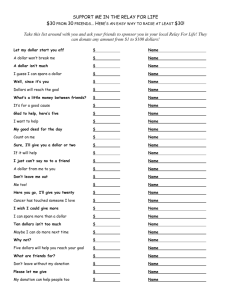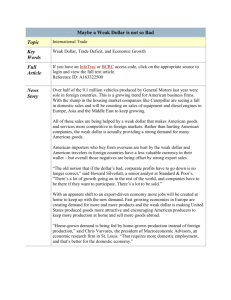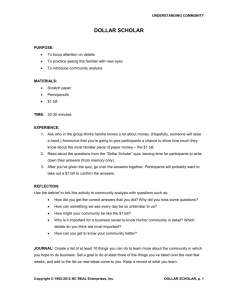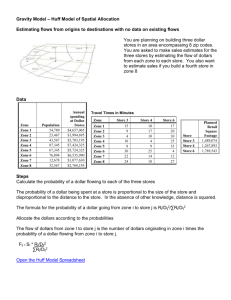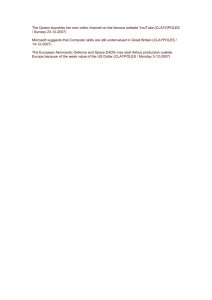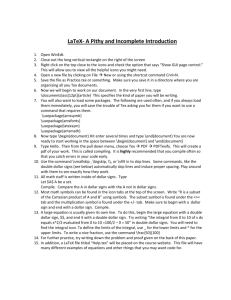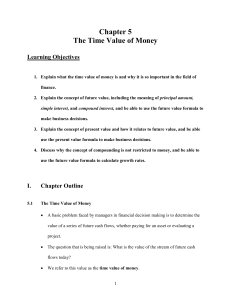for immediate release
advertisement
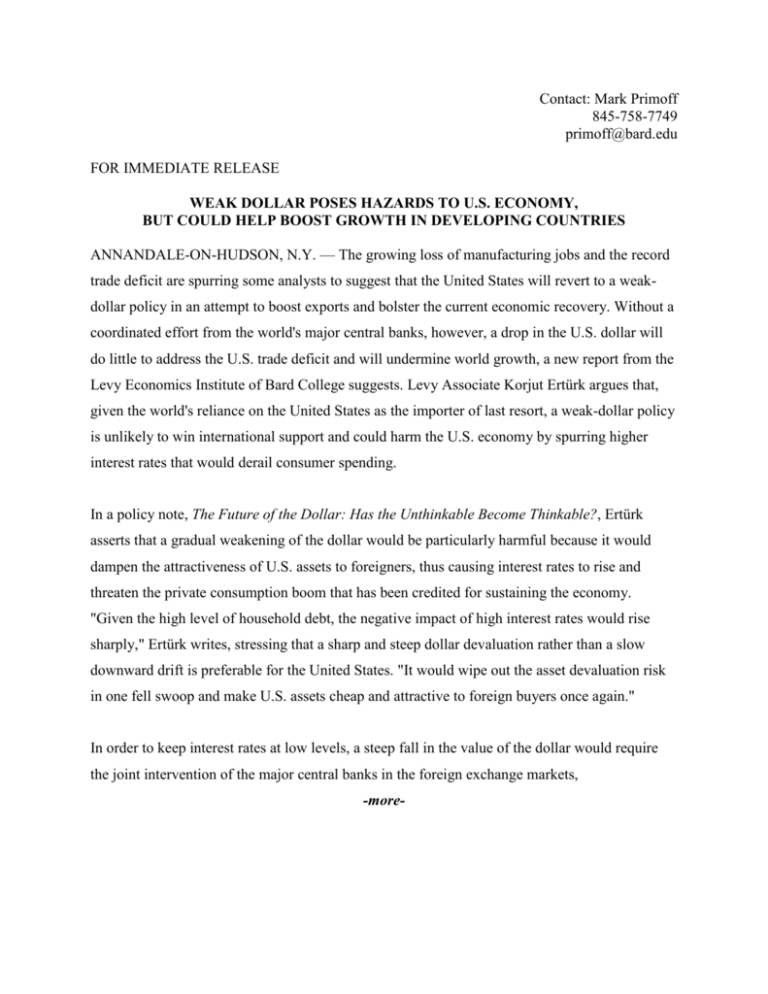
Contact: Mark Primoff 845-758-7749 primoff@bard.edu FOR IMMEDIATE RELEASE WEAK DOLLAR POSES HAZARDS TO U.S. ECONOMY, BUT COULD HELP BOOST GROWTH IN DEVELOPING COUNTRIES ANNANDALE-ON-HUDSON, N.Y. — The growing loss of manufacturing jobs and the record trade deficit are spurring some analysts to suggest that the United States will revert to a weakdollar policy in an attempt to boost exports and bolster the current economic recovery. Without a coordinated effort from the world's major central banks, however, a drop in the U.S. dollar will do little to address the U.S. trade deficit and will undermine world growth, a new report from the Levy Economics Institute of Bard College suggests. Levy Associate Korjut Ertürk argues that, given the world's reliance on the United States as the importer of last resort, a weak-dollar policy is unlikely to win international support and could harm the U.S. economy by spurring higher interest rates that would derail consumer spending. In a policy note, The Future of the Dollar: Has the Unthinkable Become Thinkable?, Ertürk asserts that a gradual weakening of the dollar would be particularly harmful because it would dampen the attractiveness of U.S. assets to foreigners, thus causing interest rates to rise and threaten the private consumption boom that has been credited for sustaining the economy. "Given the high level of household debt, the negative impact of high interest rates would rise sharply," Ertürk writes, stressing that a sharp and steep dollar devaluation rather than a slow downward drift is preferable for the United States. "It would wipe out the asset devaluation risk in one fell swoop and make U.S. assets cheap and attractive to foreign buyers once again." In order to keep interest rates at low levels, a steep fall in the value of the dollar would require the joint intervention of the major central banks in the foreign exchange markets, -more- Ertürk argues. Given the stagnant level of demand around the globe and, possibly, the divisiveness over the war in Iraq, Ertürk suggests that coordinated international support for a weak dollar is highly unlikely. "As long as export-led growth is the name of the game and the United States remains the engine of world growth and the importer of last resort, no one wants the dollar to significantly lose its value," he writes. "Any country whose currency appreciates against the dollar is liable to experience falling exports and economic stagnation." Ertürk contends that the current impasse over the value of the dollar stems from the growing inability of the United States to continue to be the source of global demand as its economic imbalances—from budget and trade deficits to record levels of private debt—continue to worsen. "Although much of the rest of the world may still hope that the United States continue to be the importer of last resort and that it regain its position as the engine of world growth, that role appears increasingly untenable," he writes, noting that the health of the U.S. economy now hinges largely on the hope that the corporate sector will grow fast enough to counter any potential fallout from the economy's imbalances, such as higher interest rates, which would hurt real estate prices and consumer spending. "As confidence in the rosy scenario subsides around the world, the likely outcome is a gradual fragmentation of the world currency markets," Ertürk writes, stressing the potential impact on the dollar and other world currencies should business and job growth in the United States come up short. Meanwhile, he suggests that weakness in major currencies could prove to be beneficial for developing countries by making it easier for them to stimulate their own internal demand as investment returns to assets denominated in local currencies. "The weaker the dollar is expected to get, and the greater the uncertainty about the euro and the yen, the greater the ability of developing countries to reflate their economies," he says. ### Public Policy Note 2003/7, The Future of the Dollar: Has the Unthinkable Become Thinkable? (12.12.03)

